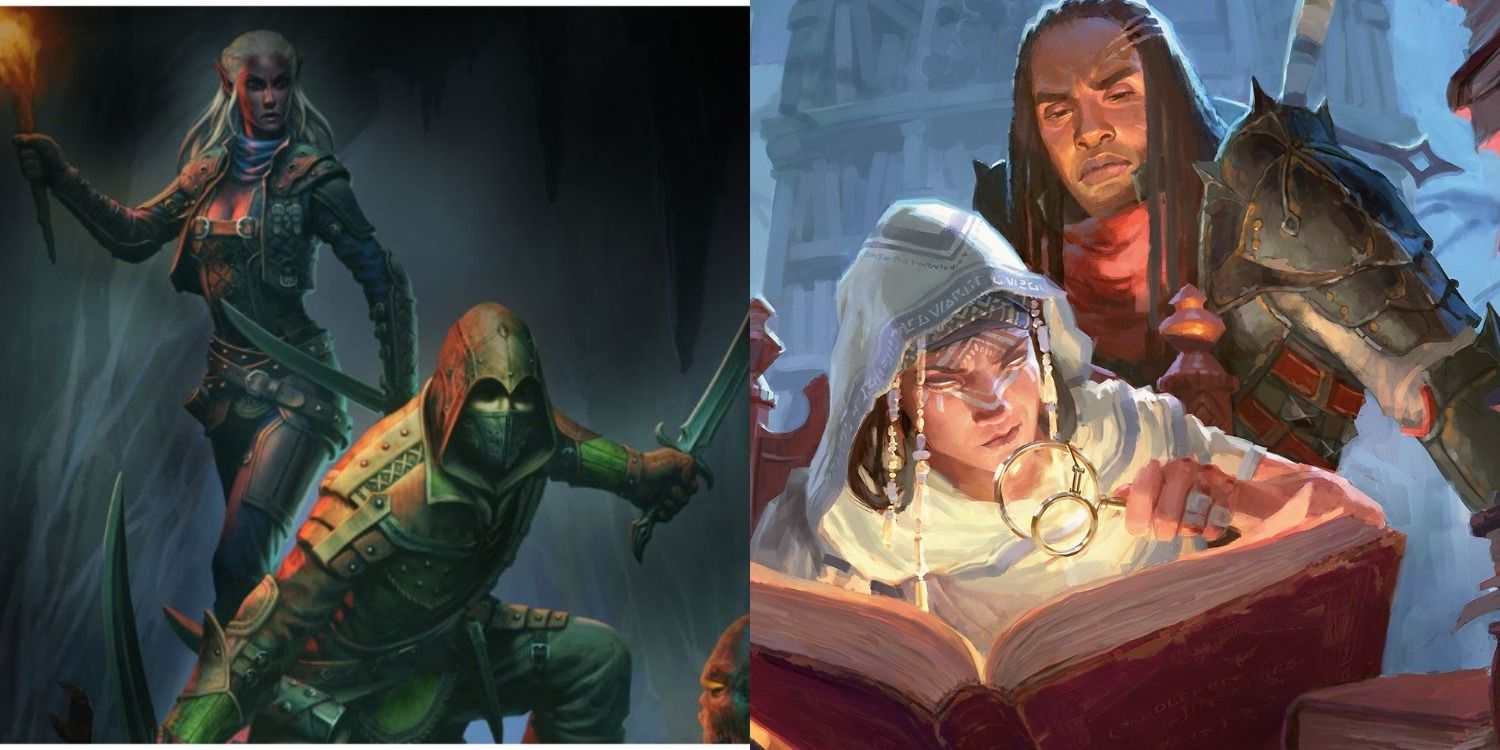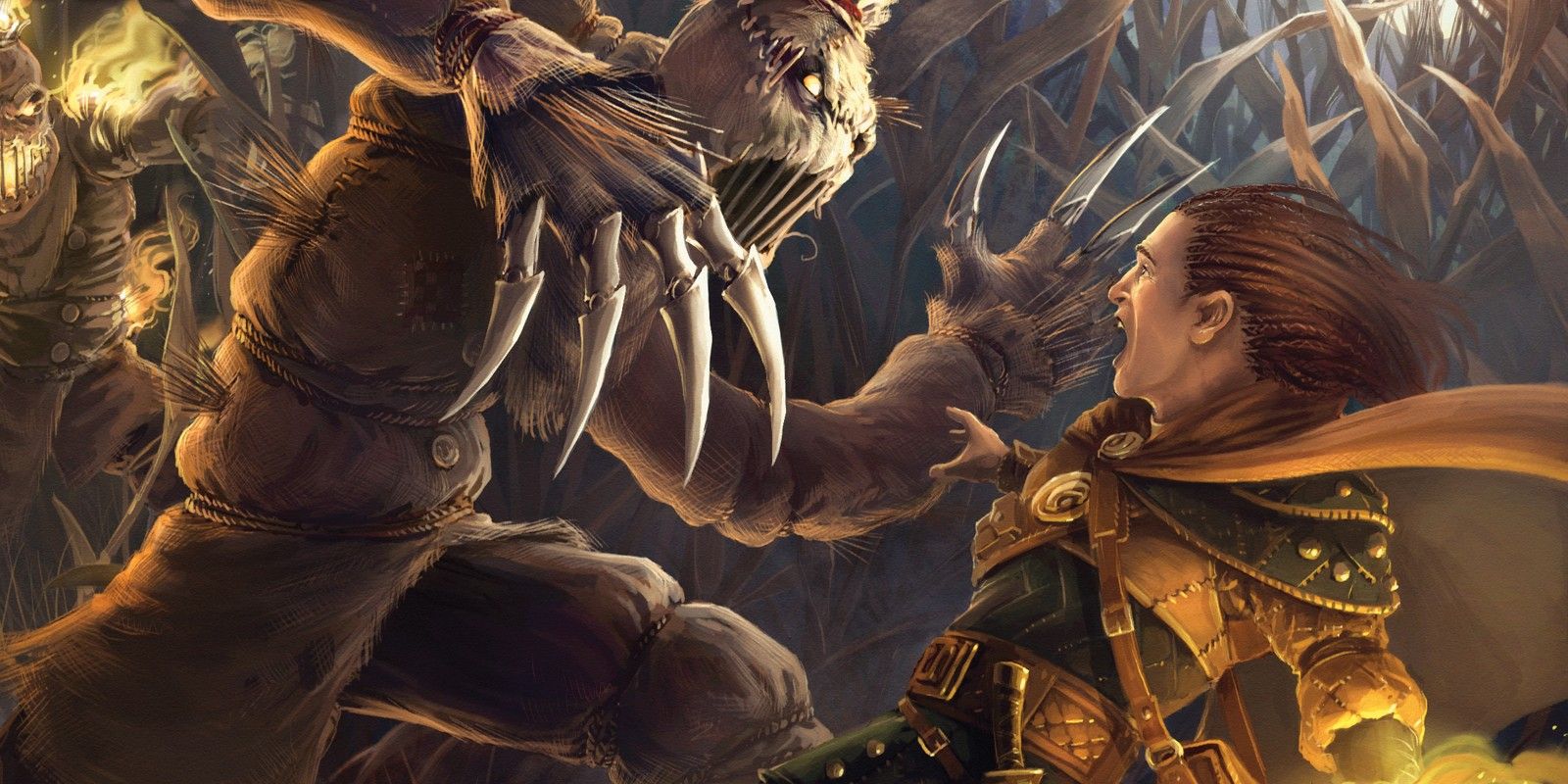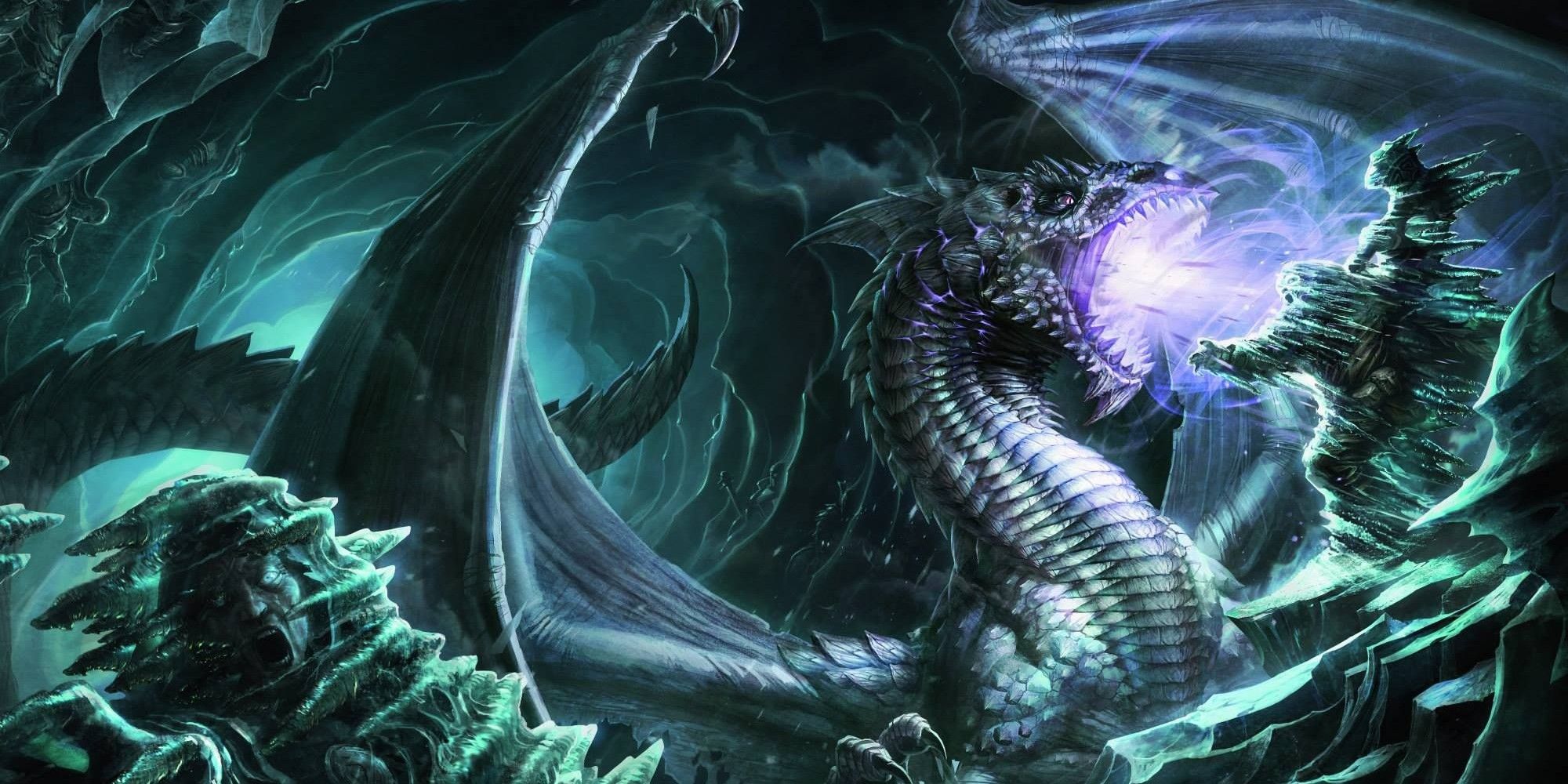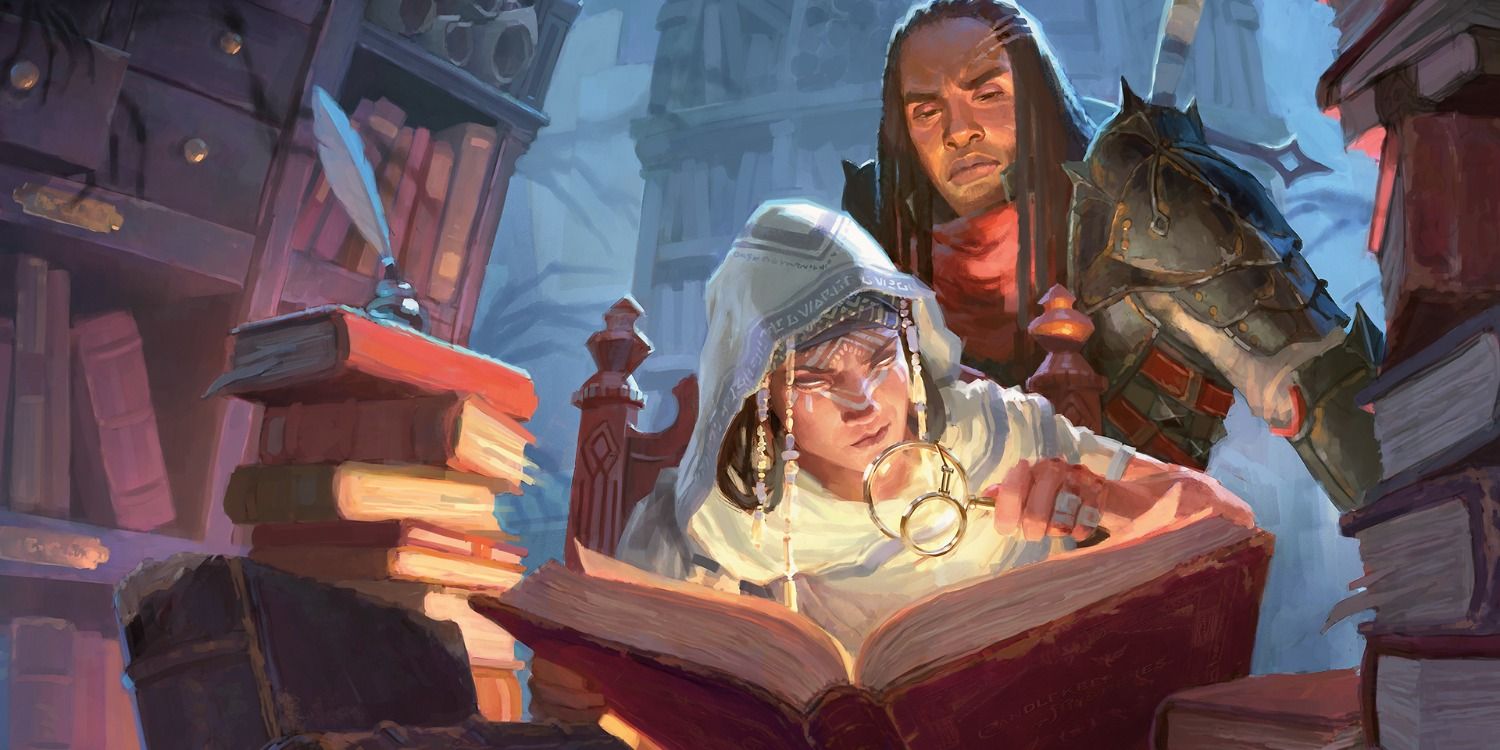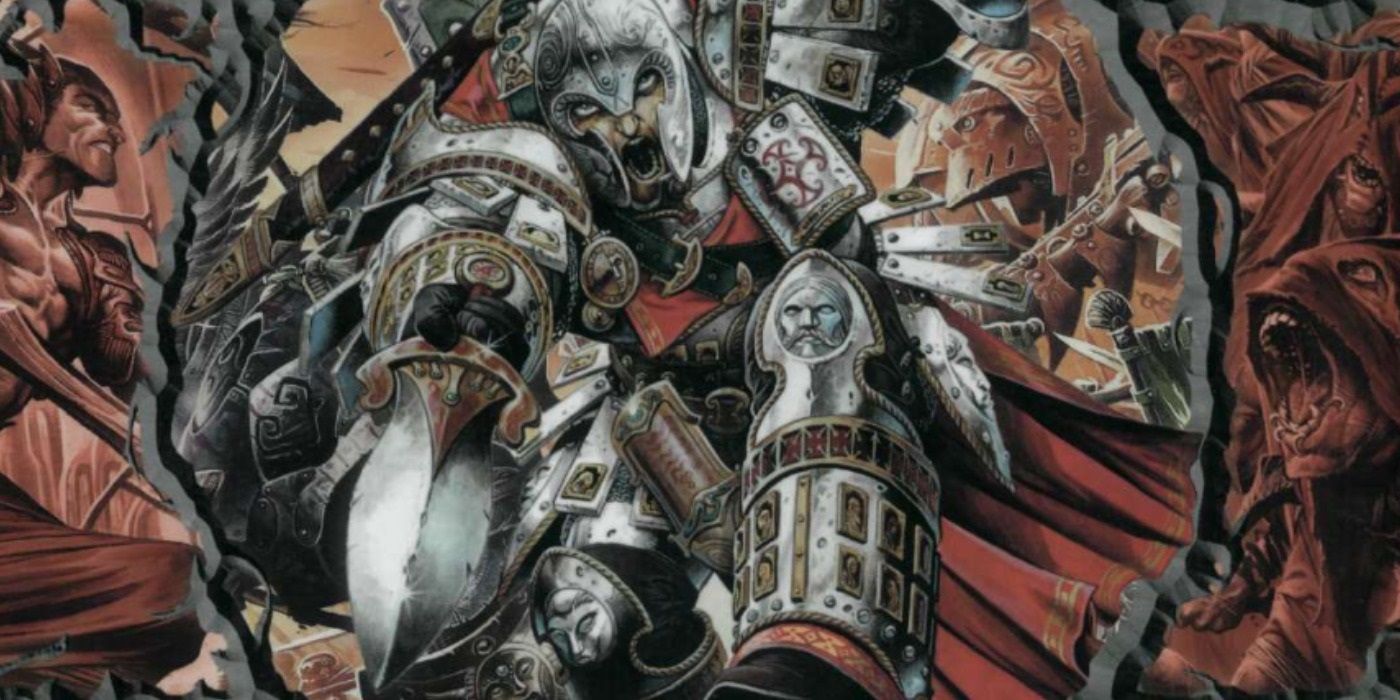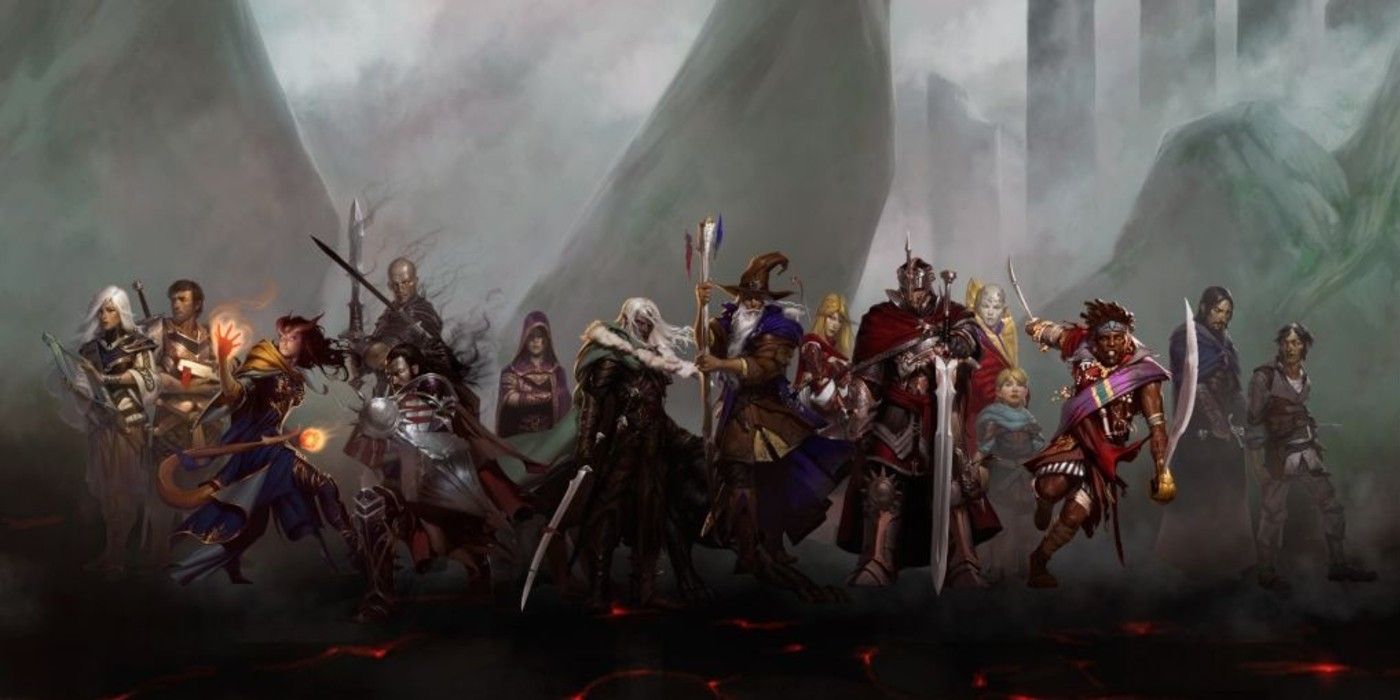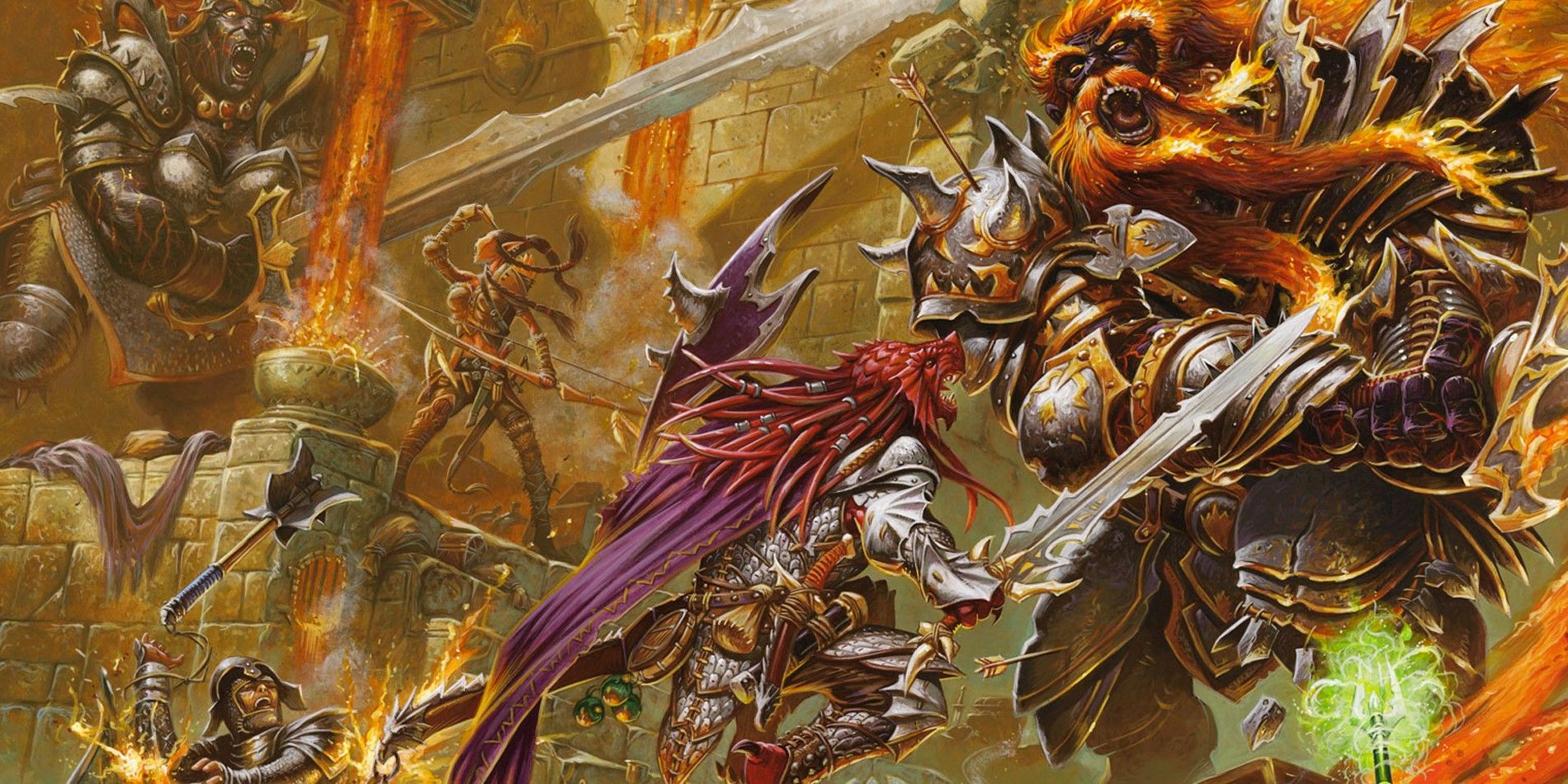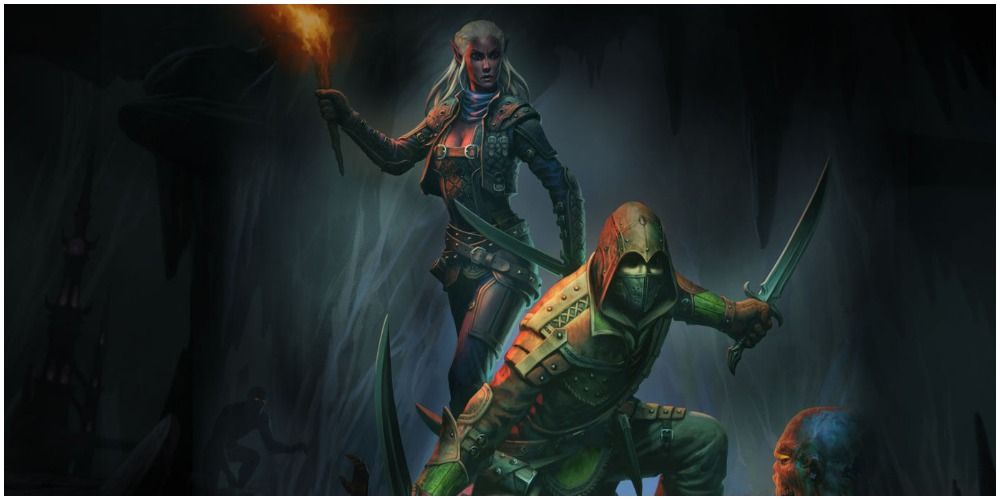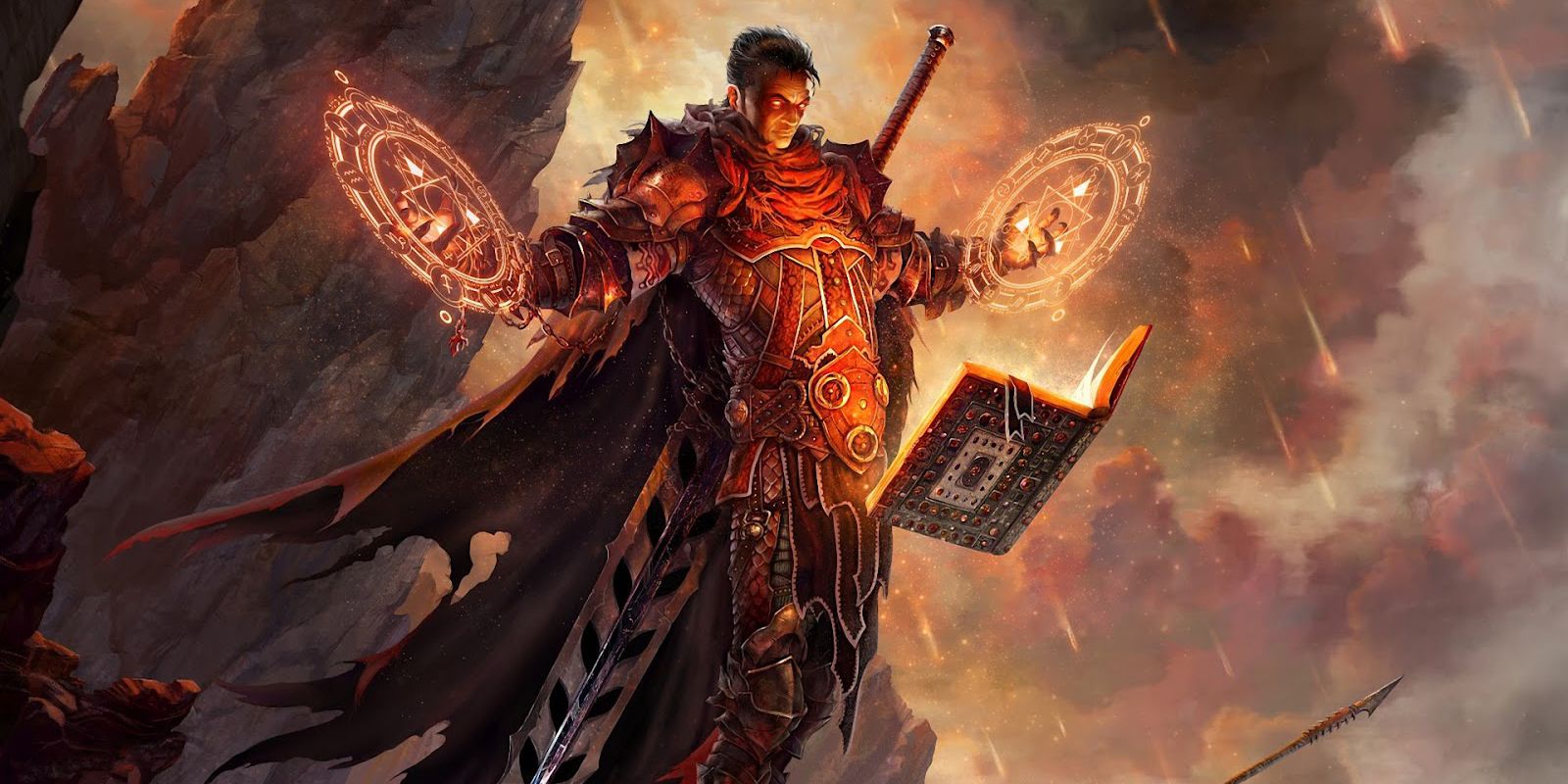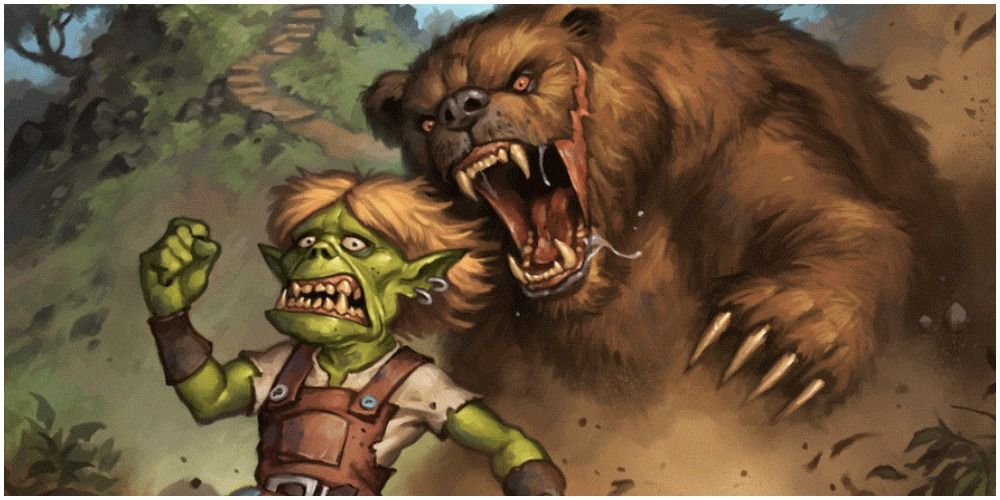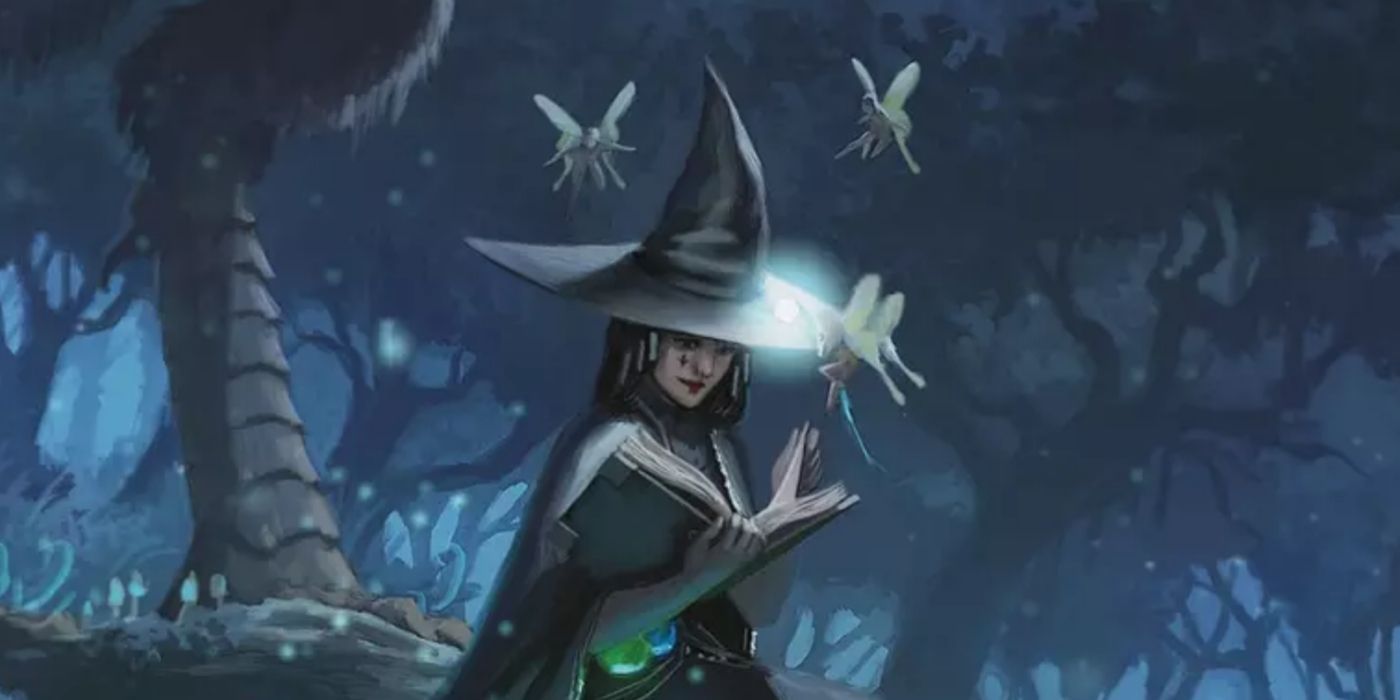Running a Dungeons and Dragons campaign can be challenging for any DM. The amount of preparation, creativity, and knowledge required to build a solid campaign is immense, especially if you're running a homebrew campaign. Yet, sometimes players seem to want to make it even harder for a DM by wanting their mother, brother, second cousin, and significant others to join as well.
While it is important to set a limit to the number of players, sometimes situations happen where having more than 3-5 players is unavoidable. If you find yourself in this situation, though, don't fear! There are plenty of ways to maintain a quality campaign and keep your players engaged.
Be Prepared, But Not Too Prepared
Preparation is key to any campaign and this can't be stressed enough! One session can drag on forever with any amount of players if the DM is stumbling around reading the rules, forgetting important information, or losing track of their creature's attacks and initiative orders.
A good DM is organized with all the information they need easily accessible and has an idea of what is coming up next and how to get there seamlessly. Yet, it is also important for a DM not to be overly prepared. If your players are constantly being pushed into situation after situation that a DM has completely orchestrated, you will quickly lose players' interests and they will become a drag on the flow of the campaign because you're taking away the best thing about DND - freedom of adventure.
Guest DM
One of the hardest parts of dming large groups of players comes in combat. While having experienced players who know what they can do and want to do when their turn comes can be very helpful, a large battle can still be daunting as one player has to wait for 6 or more other players to take their turn before having anything to do.
Smaller battles can also be challenging as two creatures being attacked by 7 players will be dispatched quite quickly and, perhaps, before an entire round of combat has been completed. Thus, the ability to split the party and have two battles happening at once can come in handy! A guest dm can also add fresh ideas to combat that you, as the main DM, might not think of. Yet it is important for any guest to be on the same page as you.
Draw Your Players In
Engagement is key to dming a large group, and nothing is more engaging than a vivid story and animated characters. Preparing some epic music for a fight scene or using unique and varied voices for characters are both excellent ways to achieve this engagement.
Rather than throwing a bunch of bland NPC's at your party, choose one or two NPC's and make them unforgettable. After all, it would be great to find out that your game is still talked about years later.
Designate A Rule Reader
There are a lot of complicated rules in DND and even the most experienced DM's and players will run into a situation where they're just not sure how something works. A DM who is constantly having to look up rules will quickly get flustered and this can slow down the game considerably. If one or two experienced players are charged with the task of looking up rules, you have officially killed two goblins with one spear.
An experienced player already knows what they are going to do with their turn, thus having a chance to be helpful by looking up rules and make them feel special in their downtime. This also gives you the ability, assuming it doesn't interfere with the flow of battle, to skip a player's turn and come back to them after a question has been answered.
Monitor Side Conversations
Side conversations can completely kill a game. Let's say your monk has just backflipped off of a moving wagon to land on a bandit's horse, then used their action to cut the saddle straps, causing this bandit to fall and be trampled. It was super cool but half the game has no idea what just happened because of side conversations.
Not only is your monk going to be frustrated that their awesome moves weren't appreciated, you now have to catch up with the entire group on what just happened. It's disrespectful and frustrating, to say the least. A simple and easy fix is to set group standards. A good DM sets expectations for players, explains why they are needed, and firmly upholds them.
Know Your Players And Their Characters
As a DM, especially in a homebrew campaign, you will have all sorts of awesome scenarios, puzzles, and battles you want to see happen. This is good. Yet if your players are all about fighting and you throw puzzle after dialogue after puzzle at them, many will quickly lose interest.
RELATED: Dungeons & Dragons: 10 Stories That Are Perfect For Beginners
It is important to know what your players enjoy so that you can find ways to engage these players. If one player enjoys puzzles and research, give them an opportunity to split from a battle and do other things while their party is slaughtering orcs. Along with this, it is important to know what skills your players have. If a player has invested heavily in the Animal Handling skill but never gets a chance to use it, they are not going to be very happy.
Allow Ways For Players To Miss Sessions
A large group of players often find it difficult to plan times to meet. Creating situations that allow players to miss sessions then becomes very important. Perhaps a trap hole opened up and sent a character falling to who knows where. Now that character has a good reason to be missing and it adds a level of excitement to the story. Where did they go? How do we find them? What happened to them after they fell?
Once the player is able to join a session again, they can come back with any manner of plot, twist, or quest item, and for that session, you had one less person to worry about! This can also give players who just aren't feeling it a good way to step away from the game without feeling as if they have insulted the DM.
Be Firm, But Don't Make Your Players Feel Dumb
Every DM will run into that player who wants a super OP character or can't resist starting side conversations, regardless of expectations. A DM must be firm in these situations. As a DM it is literally your job to balance the game and maintain the rules and expectations. Speak to your players, explain your reasoning, and let them know that decisions on this type of stuff ultimately fall to you. Yet, it is important to be gentle in the way you communicate your reasoning to players. An assertive leadership style will help you in these situations.
Make Side Quests Relevant
Side quests and random encounters live in the very heart of DND as it progresses the idea of the freedom of adventure. Yet a campaign can easily be derailed if your players spend too much time dealing with side quests that don't add to the greater plot in any sort of way.
A player might ask "Why did we spend two sessions wrangling a lost herd of cattle back to their owner just to receive a few pieces of silver to never see these NPC's again?" This is a very understandable question, no one likes wasting effort and time, even if the process was fun. Yet, if a DM can make a side quest relevant by awarding an item or information to a party that will come in use for the main campaign, suddenly that side quest doesn't seem like a waste of time.
Open-Ended Situations
Creating open-ended situations can greatly help a dm manage a session. Let's say that your players need to sneak into a castle and steal a key. Rather than leading your players by the nose to this secret entrance and this path and this fight, just describe the castle and the objective and let your players at it! This will free up time for you to plan and stay organized while your players discuss and implement their plan of attack.

